Navigating Your Way to Adventure: A Comprehensive Guide to Campground Maps
Related Articles: Navigating Your Way to Adventure: A Comprehensive Guide to Campground Maps
Introduction
In this auspicious occasion, we are delighted to delve into the intriguing topic related to Navigating Your Way to Adventure: A Comprehensive Guide to Campground Maps. Let’s weave interesting information and offer fresh perspectives to the readers.
Table of Content
Navigating Your Way to Adventure: A Comprehensive Guide to Campground Maps

Campgrounds, with their promise of fresh air, crackling campfires, and the serenity of nature, offer a welcome escape from the daily grind. However, finding your way around a sprawling campground can be a challenge, especially for first-time visitors. This is where a campground map becomes an indispensable tool, providing crucial information to ensure a smooth and enjoyable camping experience.
Understanding the Importance of Campground Maps
Campground maps serve as a visual guide, offering a clear and concise overview of the campground’s layout. They are essential for:
- Locating Your Site: Identifying your designated campsite is the first step to setting up camp. Maps clearly mark each site, often with numbers or letters, making it easy to find your designated spot.
- Navigating the Campground: Maps help you navigate the campground efficiently, guiding you to amenities like restrooms, showers, dump stations, and recreational areas.
- Exploring the Surrounding Area: Many campground maps extend beyond the immediate campsite boundaries, showcasing nearby hiking trails, lakes, or other attractions, allowing campers to plan their adventures.
- Safety and Security: Knowing the campground’s layout helps campers familiarize themselves with potential hazards, such as steep inclines, water bodies, or wildlife zones, promoting safety and awareness.
- Planning Activities: Campground maps often highlight features like playgrounds, picnic areas, and amphitheaters, enabling campers to plan their activities and maximize their enjoyment.
Deciphering the Components of a Campground Map
Campground maps typically include various elements designed to provide comprehensive information:
- Legend: A legend explains the symbols and colors used on the map, clarifying the meaning of each icon.
- Scale: The scale indicates the relationship between distances on the map and actual distances in the campground, allowing campers to estimate walking distances.
- Compass Rose: A compass rose helps campers orient themselves within the campground, indicating north, south, east, and west.
- Site Numbers and Letters: Each campsite is assigned a unique number or letter, making it easy to locate your designated spot.
- Amenities: Amenities like restrooms, showers, dump stations, and laundry facilities are marked on the map, ensuring easy access to essential services.
- Trails and Roads: Trails and roads within the campground are clearly marked, allowing campers to navigate efficiently and explore the surrounding area.
- Points of Interest: Campgrounds may highlight points of interest like picnic areas, playgrounds, amphitheaters, and nature trails, encouraging exploration and enjoyment.
- Emergency Contact Information: Campground maps often include emergency contact information, such as the park ranger’s office or local emergency services, ensuring swift assistance in case of need.
Beyond the Basics: Enhanced Features on Campground Maps
Modern campground maps are increasingly incorporating advanced features to enhance the camping experience:
- Interactive Maps: Digital versions of campground maps, often accessible through websites or mobile apps, offer interactive features like zooming, panning, and searching for specific locations.
- GPS Integration: Some campground maps integrate with GPS systems, allowing campers to navigate to their campsite with ease.
- Real-Time Information: Interactive maps can display real-time information about campsite availability, amenity status, and weather conditions, providing campers with up-to-date insights.
- Accessibility Information: Maps are increasingly incorporating information about accessibility features, such as designated accessible campsites, accessible restrooms, and paved paths, ensuring inclusivity for all campers.
Frequently Asked Questions about Campground Maps
Q: Where can I find a campground map?
A: Campground maps are typically available at the campground entrance, in the camp office, or on the campground’s website. Some parks and campgrounds also provide maps in brochures or pamphlets.
Q: How do I interpret the symbols and colors on a campground map?
A: The map legend will explain the meaning of each symbol and color used on the map. Refer to the legend to understand the different features and amenities marked on the map.
Q: What should I do if I can’t find my campsite?
A: If you’re struggling to locate your campsite, don’t hesitate to ask for assistance at the camp office. The staff will be happy to guide you to your designated spot.
Q: Are there any tips for using a campground map effectively?
A:
- Familiarize yourself with the map before arriving at the campground. This will help you get your bearings and plan your activities.
- Mark your campsite on the map. This will make it easier to find your way back to your site, especially after exploring the campground.
- Use the map to plan your daily activities. Identify nearby trails, amenities, and points of interest to maximize your enjoyment.
- Keep the map handy throughout your stay. Refer to it whenever you need to navigate the campground or locate specific amenities.
Conclusion
A campground map is more than just a piece of paper; it’s a vital tool for navigating a sprawling campground and ensuring a seamless and enjoyable camping experience. By understanding the map’s components and utilizing its information effectively, campers can maximize their time outdoors, explore the surrounding area, and create lasting memories. Whether you’re a seasoned camper or a first-timer, a campground map is your key to unlocking the full potential of your outdoor adventure.



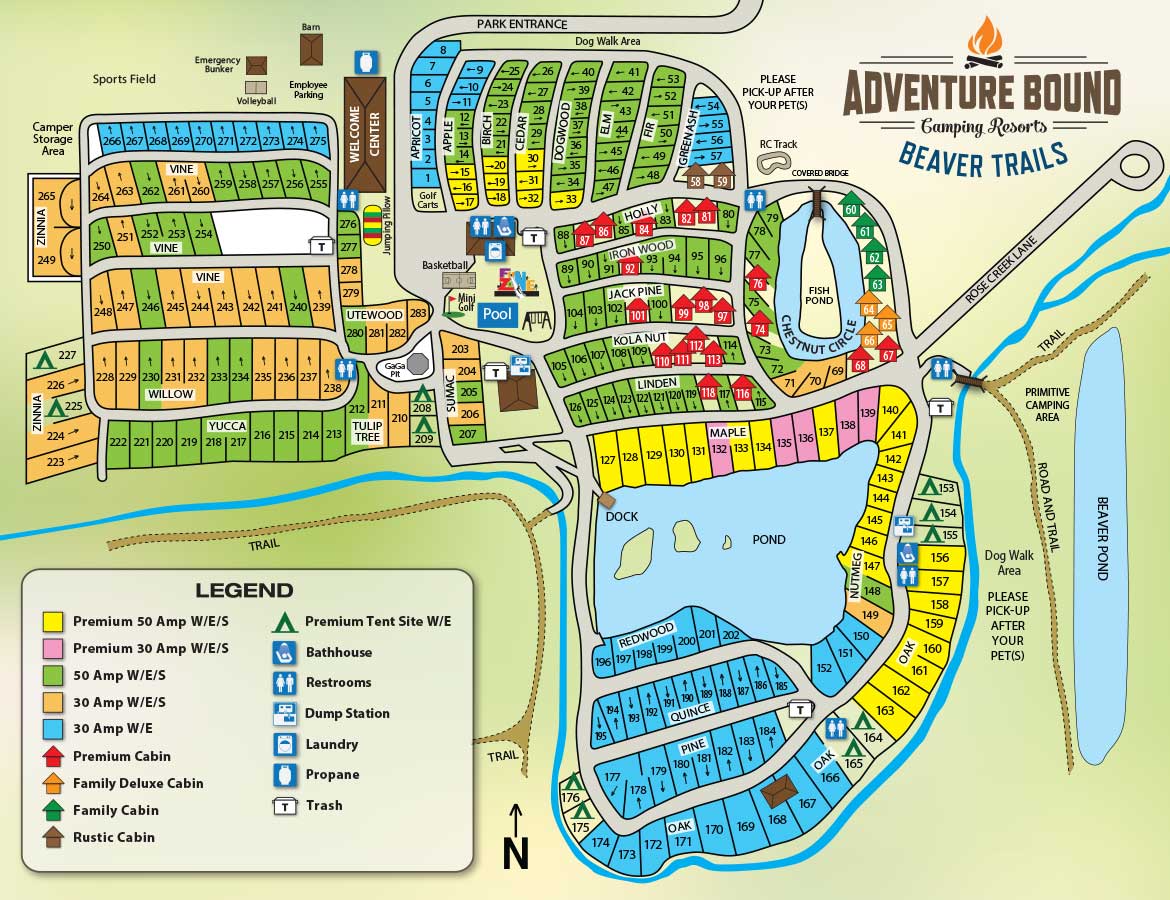
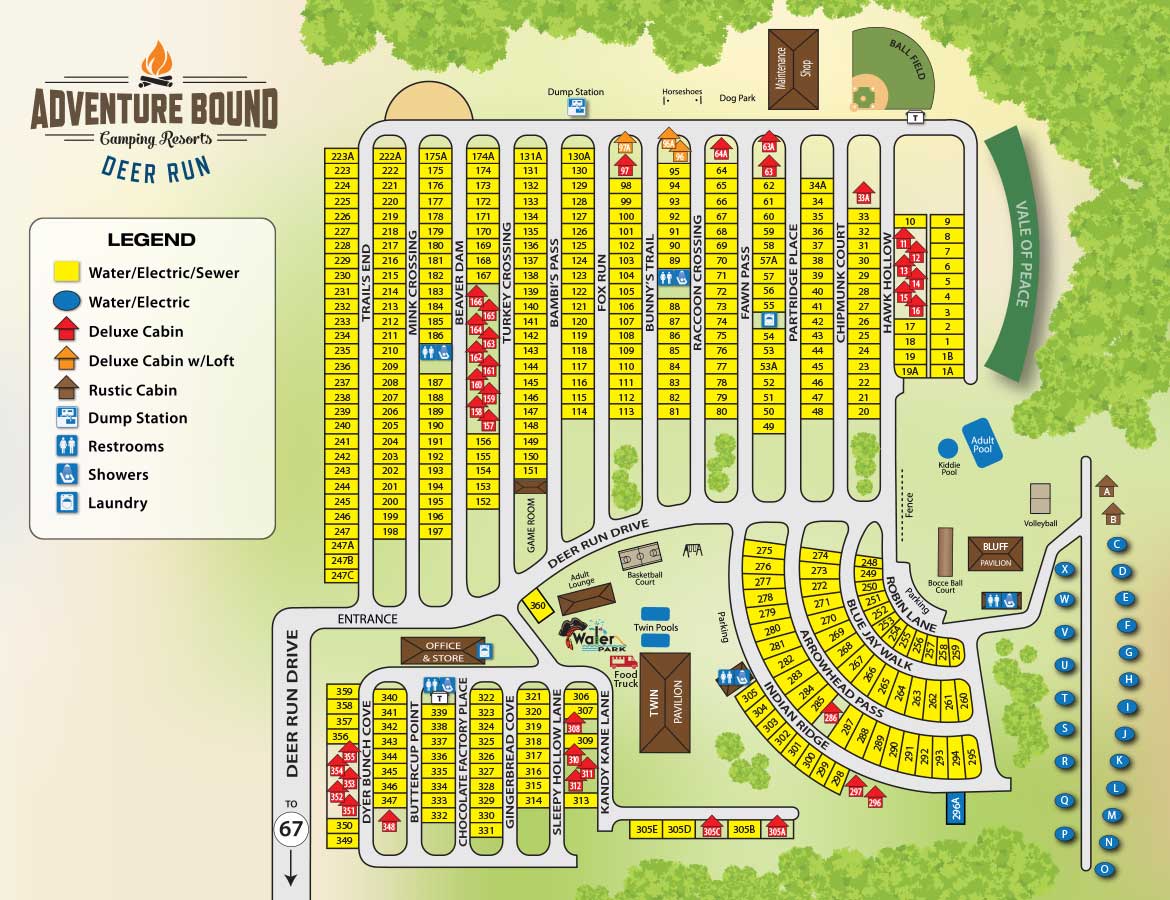
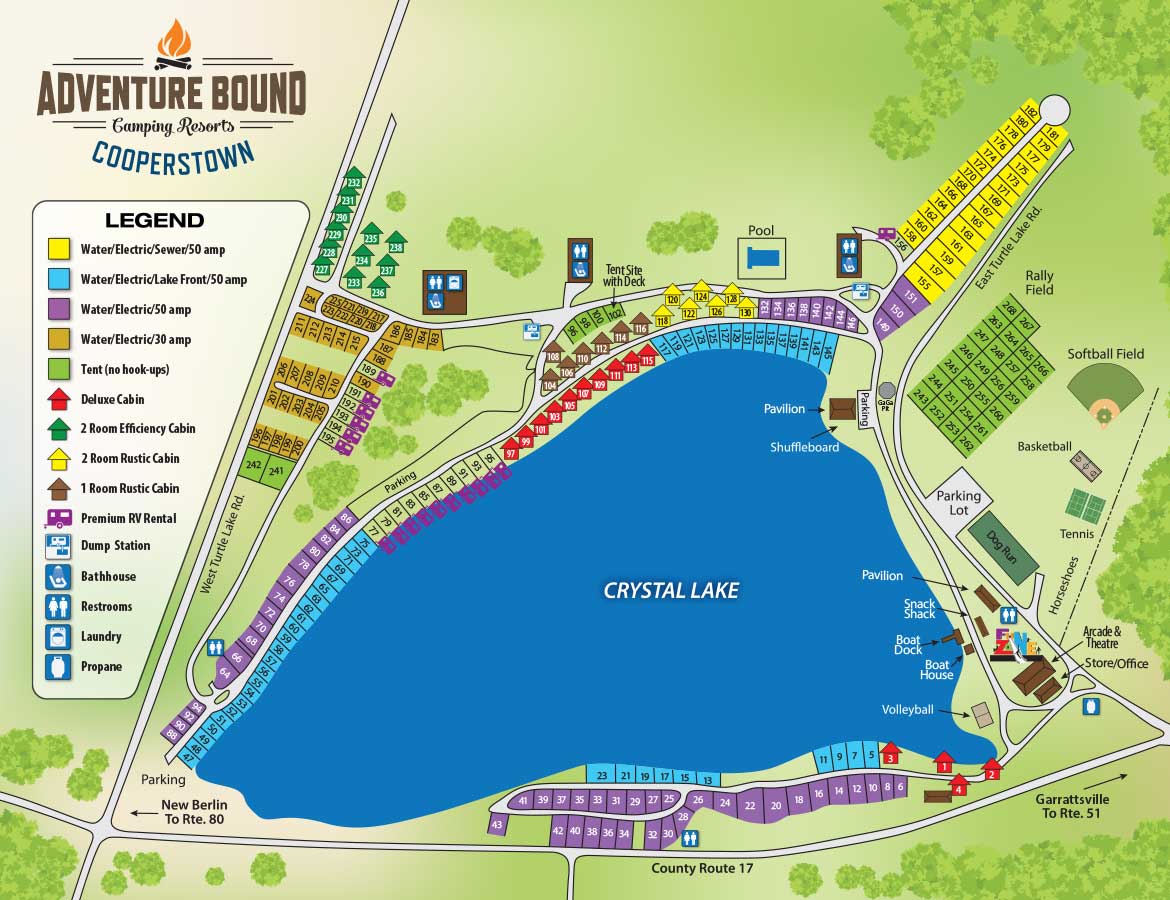
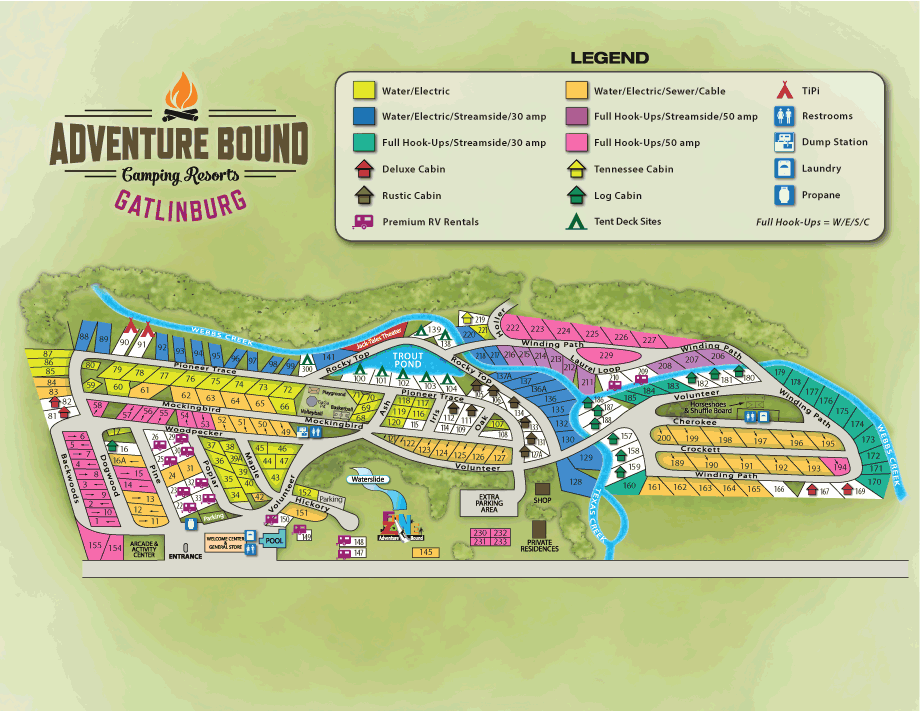
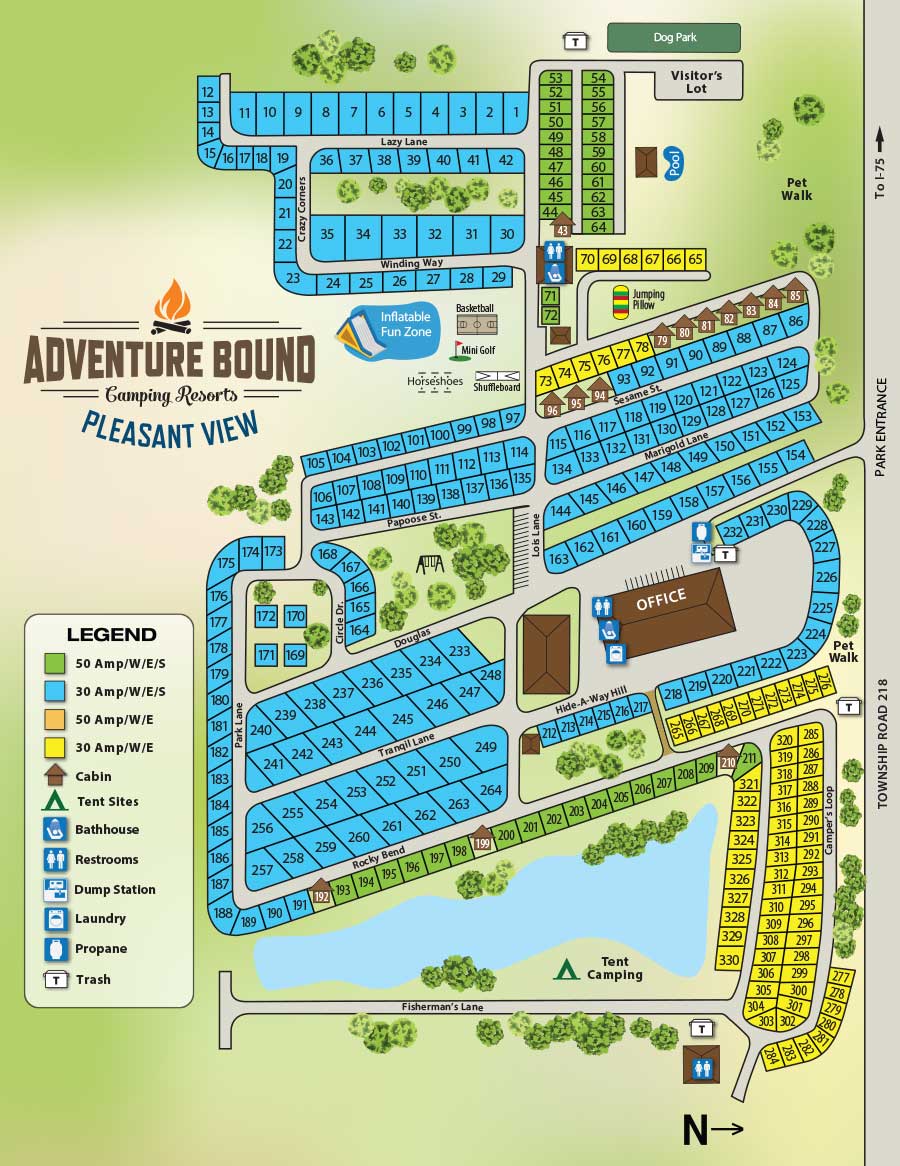
Closure
Thus, we hope this article has provided valuable insights into Navigating Your Way to Adventure: A Comprehensive Guide to Campground Maps. We thank you for taking the time to read this article. See you in our next article!